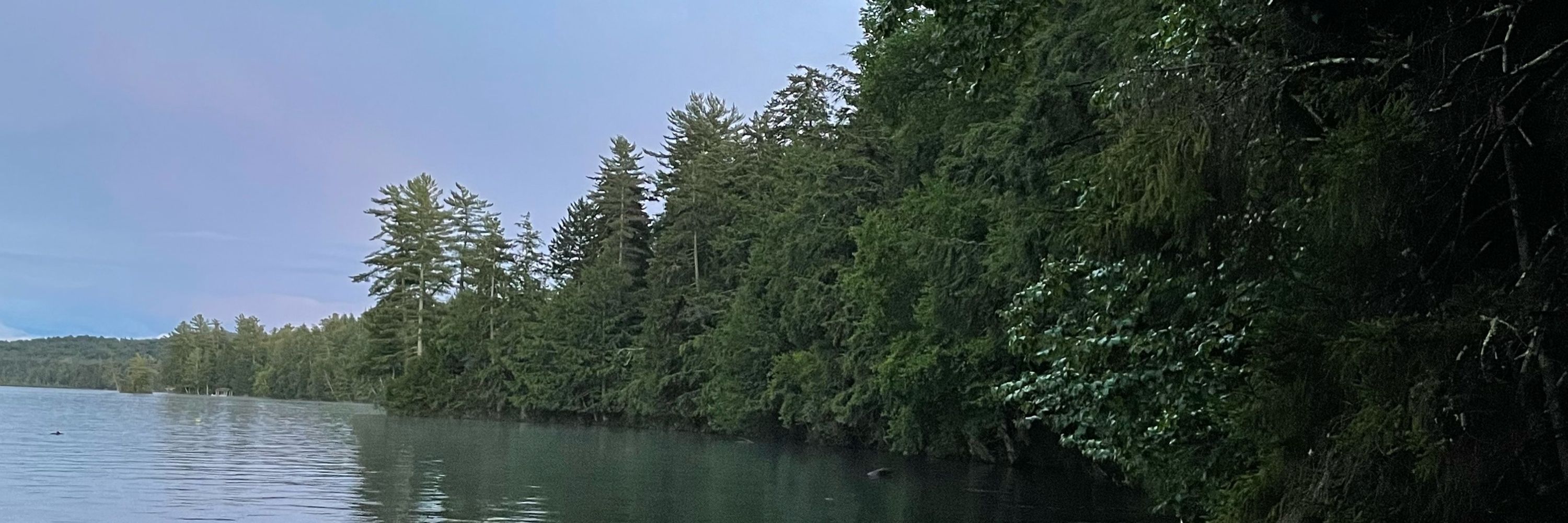
Distinguished Professor and Director, Rutgers Climate and Energy Institute
Biodiversity conservation, invasive species, wildlife trade, eDNA, climate change
Lockwoodlab.com
sites.rutgers.edu/edna/
Julie L. Lockwood is an American ecologist who is a professor in the Department of Ecology, Evolution, and Natural Resources at Rutgers University. She is the Director of the Institute of Earth, Ocean, and Atmospheric Sciences. Her research investigates how invasive species impact natural ecosystems. In 2022, she was elected a Fellow of the American Association for the Advancement of Science. .. more
Reposted by Julie L. Lockwood


Reposted by Jonathan A. Eisen, Julie L. Lockwood, Elena Litchman
#protistsonsky 🧵
Reposted by Julie L. Lockwood

In this recent paper, the authors create a new class of time structured model that better predicts population growth in a variable world 🌍 🧪 🖥️
🔎 Read here:
Reposted by Julie L. Lockwood
Reposted by Julie L. Lockwood

Reposted by Julie L. Lockwood

@ergabiodiv.bsky.social @biogeneurope.bsky.social
Why go beyond the reference genome?
Because population genomics reveals hidden risks — low diversity, genetic drift, and declining gene flow. 🌍
Wetlands are disappearing… and so is genetic diversity.
Reposted by Julie L. Lockwood

➡️ theconversation.com/topics/clima...
Reposted by Julie L. Lockwood, Jussi T. Eronen, Tuomas Kankaanpää

ECI's Prof Christian Brand @profchristianbrand.bsky.social says: “Transport is hard to decarbonise; this report shows how policy & evidence can work together.” ➡️ ukerc.ac.uk/news/new-res...

Reposted by Julie L. Lockwood

But, and this is Very important:
Not writing papers is also hard
The frustration & stress that comes from not getting your papers written and published is huge
If you need help with this PLEASE, take a copy of my book from a library, amazon or a friend!
I hope it helps💪
Reposted by Marten Winter, Julie L. Lockwood

Reposted by Julie L. Lockwood
In this recent paper, the authors explore the complexities that come with assessing biodiversity, and investigate biodiversity through integrative biodiversity indicators 🧪 🌍
🔎 Read more here:
Reposted by Rob Marchant, Julie L. Lockwood

ECI's Prof Christian Brand @profchristianbrand.bsky.social says: “Transport is hard to decarbonise; this report shows how policy & evidence can work together.” ➡️ ukerc.ac.uk/news/new-res...
Reposted by Julie L. Lockwood

📖 Read the full paper here ➡️ buff.ly/x4mAi6k
Reposted by Julie L. Lockwood

📖 Read the full paper here ➡️ buff.ly/OlE5817
Reposted by Aníbal Pauchard, Julie L. Lockwood

doi.org/10.3897/neob...
Reposted by Julie L. Lockwood, Neil Pederson
Trout unlimited has a tool on their page that will automatically send your message to the EPA as well as your representatives:
www.tu.org/conservation...
Reposted by Julie L. Lockwood

Read more at tinyurl.com/249ntknm
Reposted by Julie L. Lockwood
Reposted by Lisa W. Fazio, David Dunning, Julie L. Lockwood , and 12 more Lisa W. Fazio, David Dunning, Julie L. Lockwood, Ian Campbell, Jason N. Doctor, Alan Richardson, Andrew L. Whitehead, Mark Rice, Brian Weatherson, Catherine J. Frieman, Kathleen Kennedy, Alan McNally, Peter Gratton, Annette Yoshiko Reed, Stuart Shapiro
Reposted by Katharine Hayhoe, Julie L. Lockwood
Reposted by Julie L. Lockwood
Reposted by Julie L. Lockwood

Read more at tinyurl.com/bdd72nu4
Reposted by Julie L. Lockwood

Read more at tinyurl.com/42bezpe6
Reposted by Julie L. Lockwood
Shell to Shore uses recycled oyster shells from local restaurants to create living shorelines that protect coastal habitats and reduce erosion.
Are you a fan of innovative solutions? Help make them possible: https://nature.ly/48NWYJ6
Reposted by Julie L. Lockwood

Reposted by Julie L. Lockwood

Download here: pt.scribd.com/document/952...
#MarineScience #DNA #TexasScience #UTMSI
Reposted by Julie L. Lockwood

Reposted by Julie L. Lockwood

📖 Read the full guide ➡️ buff.ly/SiY6emh




